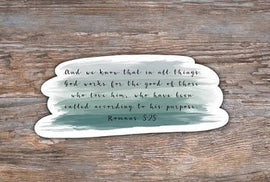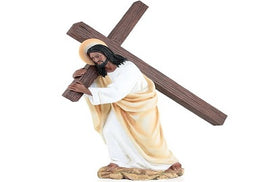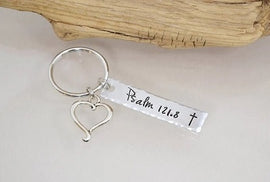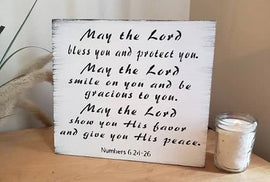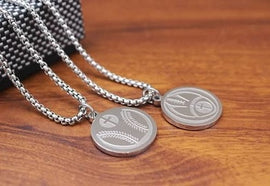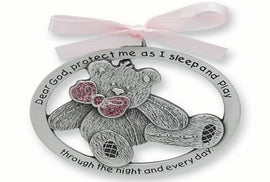12 Bible Verses of Great Sin - The Dangers of Pride

12 Bible Verses of Great Sin - The Dangers of Pride
Pride is one of many sins we justify, while the world also encourages us to worship our self-images.
When we allow pride in ourselves, we don’t allow correction or conviction from God.
It sneaks in as reasoning but is our self-righteousness. May we only strive for the righteousness that comes from our identity in Christ.
Adam and Eve eat from the forbidden tree (Genesis 3)
The serpent was God’s most deceitful creature among the wild animals. He began to question Eve about God’s instructions.
She then explains the command God had given her and Adam for the fruit of the tree in the middle of the garden.
She emphasizes God, stating that they will die if they eat or even touch this tree.
The serpent then manipulates what God had instructed for their protection.
He tells her that God only restricted this tree because it would give her eyes to become Christ.
Eve then sees the fruit from the tree as desirable to obtain the wisdom she was convinced she so badly wanted.
She takes the forbidden fruit and, without hesitation, eats it.
She does not do this act alone. She then turns to her husband, Adam, and hands off the fruit for him to eat.
He had no encounter with the serpent, so at this time, he believes its fruit from the trees God permitted them to eat off of.
Suddenly, their eyes opened, and they became aware they were naked and the fear of the Lord casted over them.
Life application: The pride of your heart can get in the way of your obedience.
When this happens, our trust does not fall to the Lord but to the desires of our flesh.
We can replace our proud hearts with the humility that we have gained, knowing we can never hold all the answers for our lives.
You can walk out these steps by trusting in God even when it doesn’t make sense.
Do not allow the desires of the flesh to block out your blessings physically.
The self-righteous builders who built great Babylon (Genesis 11)
The beginning of time started with the whole earth having the same language and vocabulary.
A group of people gathered in the land of Shinar and planned to build a city.
They wanted to build a tower high enough to make a name for themselves.
The Lord saw their pious ways and confused their language to stop them from building together any longer.
They did not wish to build this city for the Lord but to bring power and respect to their names.
When the Lord God confused their language, they stopped making their city and scattered.
It is called Babylon, for babel in Hebrew is confused. It is where God created various languages for every region.
Life application: This story helps showcase how we strive towards the desires of our eyes.
When God is not at the center of something, we make the whole world our center.
We can stop this sinful act by serving Jesus Christ first and allowing him to lead us to genuine happiness. His ways are higher than our own.
Pharaoh’s stubborn heart (Exodus 7-15)
The story of the King of Egypt is drawn out through many chapters in the book of Exodus.
The Lord had a message for Pharaoh that Moses was instructed to deliver to him personally.
However, Moses questioned his poor speaking tongue and offered his brother Aaron to fulfill this task.
God then sends both of them to tell Pharaoh that God has instructed him to release the Israelites from his land.
God expresses before sending them that he will harden Pharaoh’s heart to multiply his signs and display his works throughout Egypt.
Pharaoh challenges Moses and Aaron when hearing their request sent by God.
He asks them to perform miracles many times.
He also asks a magician to perform the same miracle each time so his heart is closed off from the Lord.
The land of Egypt suffered through ten plagues, each one causing Egypt to suffer more and more.
The last plague went as far as all of the firstborns being killed apart from this plague.
Even this act did not soften Pharaoh’s heart to release the Egyptians.
Pharoah’s ego cost him and the Egyptians to be wiped off the face of the earth.
Life application: Our self-importance can block the messages from others from Christ.
Be receptive when others attempt to reach you from something you have closed yourself off.
Fellowship begins when we remove our ego from believing we have it all together and accept the compassion that we exchange.
Judah’s youngest King, Uzziah (2 Chronicles 26)
At sixteen years old, Uzziah was made King by all of Judah to replace his father, Amaziah.
He reigned fifty-two years in Jerusalem and did what was right in the Lord’s sight, just as his father did.
Uzziah went to war against the Philistines, tearing down many walls of other cities.
God made him very powerful and well-known throughout Egypt.
He had an army equipped for combat, providing each soldier with various weapons for attack.
He was known for making skillfully designed devices in Jerusalem.
The stronger he became, his arrogance grew, leading to destruction.
He entered the Lord’s sanctuary, burning incense, a small yet unfaithful act towards God.
All the priests took a stand, calling out this shameful act that only the ordained had the right to do.
Uzziah became enraged, causing a skin disease to break out over him.
He rushed out of the Lord’s sanctuary because the Lord had afflicted him.
He lived with this disease in quarantine until his eventual death.
Life application: God’s blessings on our life are his doing, not our own.
Continue to give God the glory regardless of the gifts or status quota you receive.
Job 22:21 tells us to submit to God, and prosperity will follow.
We need to follow the word so we do not get caught up in the achievements God allows us to have that leads to the lust of the eyes filled with sinful pride.
Naaman leprosy heals (2 Kings 5)
Naaman was a commander for the King of Aram.
He was highly regarded because God had given Aram victory through him. However, he had a severe skin disease called leprosy.
Naaman was sent to Elisha, a prophet in Israel who could cure his disease.
He instructed him to wash seven times in the Jordan River, and then his skin would be restored.
He grew angry and called the Jordan the most unclean river in Israel.
He was annoyed that he was not asked to wash himself in the rivers of Damascus.
His servants asked him if he was instructed to do a brave and noble task, wouldn’t he have done it.
Why was washing himself in a lower-grade river such a forbidden task for him?
Naaman goes down and dips himself in the Jordan seven times, and his skin is now clean.
Naaman attempts to give Elisha, a man of God, a gift in repayance. Elisha declines and sends Naaman in peace back home.
Life application: Let us not miss an opportunity to remove our proud heart by our call of judgment for what we believe we are above.
God will always humble us before him as he views the proud person we are.
When we ask God to lead us into eternal life, let him remove every layer of selfish flesh we cling to.
There is no kind of pride that provides a good thing for you.
Judas the betrayer (Matthew 26)
Jesus tells his disciples that he will soon be handed over to be crucified.
Judas went to the chief priests and asked what he could receive for handing Jesus over to them.
They offered thirty pieces of silver for him. While Jesus honored the Passover with his disciples, he announced that one of them would betray him.
Each one denies it being them, and he subtly calls out that the one who dipped his hand in the bowl with him is the betrayer.
Later that night, Jesus goes into the garden alone to pray and expresses how distressed he is that his time is near.
He asks God in prayer three times, “If this cannot pass, your will be done.”
He returns to the disciples sleeping and tells them the time is near. The Son of Man will be betrayed into the hands of sinners.
Judas suddenly arrives with the chief priests, giving them a sign that the one he kisses is to be arrested.
He then greeted Jesus with a kiss. Jesus is arrested after being spit on, slapped, and beaten.
Life application: Judas betrayed God over his evil thoughts, telling him he was superior to him. Don’t let the spirit of pride tell you that you are above anyone.
Galatians 3:28: we are all one in Christ Jesus.
Nothing can differentiate us in the sight of the Lord, and that’s the humble spirit we need to have for others as God teaches us these lessons.
The spiteful Guards (Matthew 27)
Jesus faces the governor and remains silent amongst all of the blasphemy accusations.
Pilate asks the crowd which prisoner they want to be released, and through envy, they choose a notorious prisoner called Barabbas.
When Pilate asks the crowd what to do with Jesus, they yell for him to be crucified.
Pilate washes his hands before the public and states, “I am innocent of this man’s blood.” He leaves Jesus to them.
The governor’s soldiers take Jesus, strip him and dress him in a scarlet robe, twist a crown of thorns on his head, and place a staff in his hand.
They all knelt and began to mock Jesus, saying, “Hail, King of the Jews.”
They then spit on him, remove his robe, staff, and crown, and beat him.
After they are done with him, they put his clothing back on, leading him away to be crucified.
Life application: May we never allow our jealousy to consume us in an evil way that we spit out hate for others.
Our actions can be hurtful, but a lying tongue is the lust of the flesh.
Observe yourself and see what mannerisms or reactions you can weed out that resemble an arrogant person.
Simon the Magician (Acts 8)
Philip was in Samaria proclaiming the Messiah. He showed unclean spirits crying out, and paralyzed people all became healed.
So much joy was happening in the city from everyone bearing witness to the miracles of God.
Simon had practiced sorcery in this city while claiming to be somebody great.
He fooled these people into calling him the “Great Power of God.”
However, the Samaritan people now believed Philip became baptized about the good news of the Kingdom of God.
Even Simon became a believer and got baptized.
Peter and John were sent from Jerusalem to pray for the Samaritans to receive the Holy Spirit.
When Simon saw that the Spirit was given through the apostle’s hands, he urgently offered them money.
He wanted this same power to lay his hands on anybody and then receive the Holy Spirit.
Peter called out to Simon, stating his heart was not right before God and that he was poisoned with bitterness and wickedness.
Life application: Your heart has to be set on God. May we become servants to Christ, never looking for what he can do for us but what we can do for him.
Ephesians 6:7 tells us to serve with a good attitude, and we will receive this back from the Lord.
God reveals more of His clarity and direction when we walk with a serving attitude.
Herod’s Hard Heart (Acts 12)
King Herod attacked many who belonged to the church and violently executed James.
He saw this pleased the Jews, so he arrested Peter, too, all during the festival of unleavened bread.
Peter was imprisoned while the church prayed to God for him. An angel of the Lord came to Peter that night, telling him to get up, and his chains fell off instantly.
Peter knew that the Lord had delivered him from Herod’s grasp and told his fellow brothers what had just occurred.
Herod searched for Peter following an interrogation among the guards and soon had them executed.
After Herod went from Judea to Caesarea and stayed there, he was angry with the Tyre and Sidon people.
They presented themselves before him, asking for peace.
Herod delivered a speech on an appointed day in royal robes and seated on a throne.
The people began to shout, “It’s the voice of a God and not of a man!” Instantly, an angel of the Lord struck him because he did not give glory to God and died.
Life application: Herod’s haughty spirit transpired his thinking that he was untouchable even from the living God.
God may not reprimand every evil act we perform, but he will always show you the power he has before you.
Reform your human heart and the good works you do for the interest of others. Question yourself if your heart outlines God’s commands.
Saul is appointed King (1 Samuel 10)
Samuel took the flask of oil, poured it on Saul’s head, and said, “Hasn’t the Lord anointed you ruler over his inheritance?”
Samuel told Saul that when he returned, the Spirit of the Lord would come powerfully on him, and he would prophesize with them and be transformed.
Samuel would go to him with burnt offerings to offer and wait seven days for him to arrive to show him what to do.
Everyone who knew Saul asked around if he was among the prophets now.
Samuel summoned the people and told the Israelites, “This is what the Lord says: ‘Today you have rejected your God, who saves you from all your troubles and afflictions. You said, ‘You must set a king over us.”
Samuel grabbed Saul and appointed him King, stating there was no one like him among the entire population.
All of the people shouted, “Long live the king!” Some wicked men did not bring King Saul a gift, saying, “How can this guy save us.”
Life application: The people of Israel were not satisfied with God’s hand over them but had haughty eyes to be like other nations with a King.
May we not think as the Israelites did, needing confirmation in a physical form to be like those around us.
Allow God to set you apart and walk in faith that the only acceptance you need is from the Lord.
God’s favor on David (1 Samuel 18)
Saul sent out David with his army and successfully killed the Philistines.
The women welcomed David back with instruments and sang, “Saul has killed his thousands, but David his tens of thousands.”
Saul grew furious and watched David’s jealousy from then on. The next day, an evil spirit sent from God came powerfully on Saul.
David played the lyre when Saul threw a spear, thinking, “I’ll pin David to the wall.”
However, David got away from him twice. Saul was afraid of David because the Lord was with David and had left Saul.
Saul made David a commander over his troops, watching his success and the people’s love for him grow.
Saul tells David, “I’ll give my oldest daughter Merab to you as a wife if you will be a warrior for me and fight the Lord’s battles.”
David tells Saul he is a nobody to become the King’s son-in-law.
When it was time to give Merab to David, she was assigned to Adriel the Meholathite as a wife.
Life application: Saul was a wicked man focused on everything David was receiving from God that his wicked schemes attempted many times to kill David.
Be in constant wonder of what God has given and placed on your heart that no spirit can overrule your life.
Proverbs 11:2 says that when arrogance comes, disgrace follows.
A perfect example not only did the people lose respect for Saul, but God removed his favor over his life altogether.
Rebuke the sin of pride over your life and actively pursue ways to love others that break your own strength down.
Michal disapproves of David (2 Samuel 6)
David and his troops brought the Ark of God from Baalejudah.
The ark of God was set on a cart to be transported and was guarded by Uzzah and Ahio.
Uzzah had touched the ark for something had stumbled. God struck him dead for his irreverence.
He was fearful and unwilling to bring the ark of the Lord to the city of David.
Instead, he left it at the house of Obededom.
It remained in Obededom’s place for three months, and the Lord blessed him and his family.
David heard of the blessing when he sent someone to bring the ark of God to the city of David.
As the ark entered the city, Michal watched David dancing, and she despised him.
David finished burnt offerings fellowship and blessed the people in the name of the Lord.
After David returned home, Michal greeted him, saying, “How the king of Israel honored himself by exposing himself.”
David told Michal, “I will dance before the Lord, and I will dishonor and humble myself even more.”
Life application: Michal was angry over her family’s behalf for David being chosen.
Let this story be a constant reminder that God uses us all at different levels, and still, we are accepted and loved by him equally.
Stop looking at others as competition or hatred for what God has done in their life.
Replace your own pride with a steadfast love to boast the interest of others even more in God's grace.
We cannot be reformed and changed when pride is at the center of our hearts.
The deep happiness that we all long for comes from applying the gospel in our daily living to push us out of our self-centeredness and into the power of the Spirit.
SHARE:



